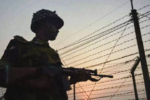The political landscape in Bangladesh has been thrown into chaos following the resignation of Prime Minister Sheikh Hasina amid widespread protests against her government. The situation escalated dramatically on August 5, 2024, as thousands of demonstrators stormed her official residence in Dhaka, resulting in significant violence and unrest.
Escalation of Protests
The protests, which began as student-led demonstrations against a controversial quota system for government jobs, have rapidly evolved into a broader anti-government movement. Reports indicate that nearly 100 people have died in the violence, with hundreds more injured as clashes erupted between protesters and security forces. The unrest has been fueled by longstanding grievances against Hasina’s administration, which critics accuse of exacerbating economic inequalities.
As the protests intensified, Hasina reportedly fled the country in a military aircraft, seeking refuge in India. Her departure marks a significant turning point in the political crisis, as the Bangladeshi military has stepped in to fill the power vacuum. Army Chief General Waqar-uz-Zaman announced the establishment of an interim government, signaling a shift in governance amid the turmoil.
The Role of the Military
In the wake of Hasina’s resignation, the military’s involvement has raised concerns about the future of democracy in Bangladesh. General Waqar-uz-Zaman has called for cooperation from political leaders and civil society in restoring order. The military’s history of political intervention adds a layer of complexity to the current situation, with many citizens watching closely to see how the army will manage the unrest.
The military has also imposed a nationwide curfew in response to the escalating violence, which has included attacks on properties associated with the ruling Awami League party. Reports of looting and vandalism have emerged, further highlighting the extent of public discontent.
Implications for India
The political crisis in Bangladesh has significant implications for neighboring India, which shares a long border and historical ties with the country. Former Indian high commissioner to Dhaka, Pankaj Saran, emphasized the need for India to remain vigilant on its border in light of the turmoil. He noted that the situation could lead to increased tensions and potential cross-border movements.
Saran stated, “We will have to be very vigilant on the border. That is the immediate requirement.” He also expressed concerns about the impact of the ongoing unrest on Bangladesh’s economy, which is closely integrated with India’s.
Increased Security Measures
In light of the recent unrest in Bangladesh, Indian authorities, particularly the Border Security Force (BSF), have implemented strict security measures. Senior border officials have been deployed to maintain a heightened state of alert, with reports indicating that the border has been nearly sealed to prevent any potential spillover of violence or unrest from across the border. This increased vigilance aims to ensure the safety and security of Indian citizens living in border areas.
Recently, hundreds of students studying in Bangladesh have returned to India through the borders of Meghalaya and Agartala. The students had been protesting a 30% reservation in government jobs for relatives of freedom fighters, which led to clashes with security forces in Bangladesh.
Meghalaya shares a 443 km border with Bangladesh, and the influx of students has raised concerns about the potential impact on border communities. Local authorities are working to ensure the safety and well-being of the returning students while maintaining security along the border.
The heightened border vigilance and potential disruptions in cross-border trade could have significant economic implications for border regions in West Bengal, Meghalaya, and Assam. Many residents rely on cross-border trade as a vital source of income, and any disruptions could lead to economic strain in these communities.
Additionally, the flow of goods and services may be adversely affected, leading to potential shortages and price increases for essential items. Local businesses that depend on cross-border trade may face challenges, further exacerbating the economic impact of the crisis





GIPHY App Key not set. Please check settings